This page features collectible vehicle and pedestrian signal lenses.
Before I get into the collectible lenses, some people have asked if a 12" smiley lens was ever made. I have never seen or heard of one. The 12 Inch Crouse Hinds Art Deco signal that I have came with this type of lens shown here.
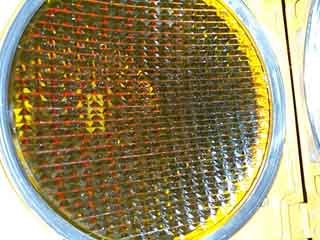
This picture was taken from the inside of the door. The detail of the lens is shown better that way.
Crouse Hinds lenses with the commands STOP, CAUTION, and GO embossed in the lens.



A few different companies made lenses like these. Crouse Hinds put their 3D cube shaped logo near the top of the lens. Other companies produced lenses that were almost identical, except they obviously could not use the Crouse Hinds logo.
Macbeth Evans Glass Company Lenses
I am not sure how rare these lenses are, but I like them because they are identical to the lenses with the commands embossed in them except without the commands. Below are views of the inside and outside of the lens. The pattern in the lens is the same that was used in the lenses with the commands embossed in them.
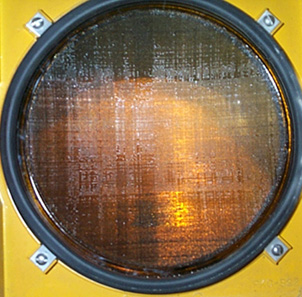
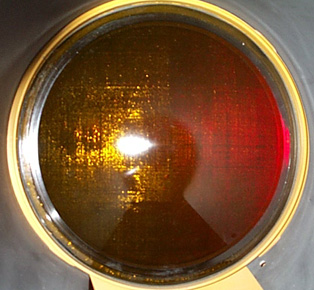
WAIT WALK lenses.
These were used in Crouse Hinds 8 inch Art Deco style signals, and were also used by Eagle signal.


Recently I discovered that the WAIT WALK lenses pictured above also were made in 12 inch versions! I have only heard of them being used in the state of Hawaii in Econolite Bulls-Eye heads with square doors.
The 8 inch WAIT lens was also made in an all black with white letter version.

Here is a new lens that wasn't known to exist among collectors until 2014, a DONT lens.

The WAIT lens was also made in a square version as shown below.
Also recently discovered is this LUNAR BLUE WALK lens shown in the animation below.
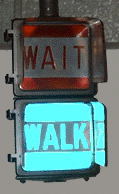
Crouse Hinds Smiley Lens
Most signal fans know about the Smiley or half moon lens. But what is not as commonly known is that there is an earlier version of the smiley lens that was made before ITE specs were introduced.
Here is a picture of the common smiley lens on the left and the rare smiley on the right.
(Depending on what screen resolution you are using, the common one may appear first with the rare one below it.)
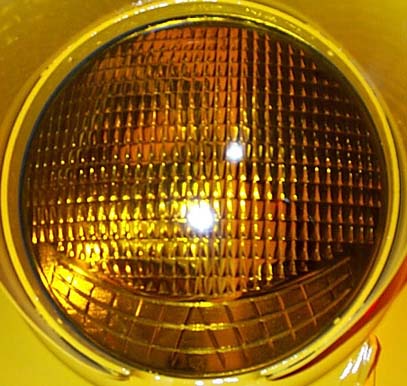
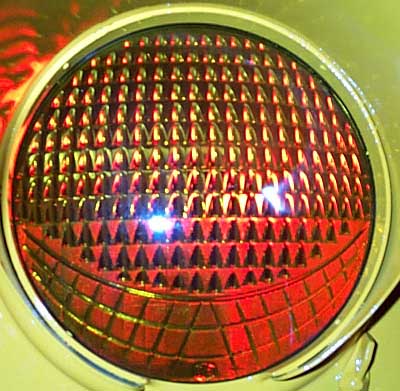
Notice the size of the "beads" in the glass. They are much bigger in the older lens.
The smile pattern is slightly larger as well.
Darley lenses are somewhat hard to come by. Green Darley lenses were not made with the bluish green tint that all most all other lenses were made with. Darley lenses have an orange peel like texture on the inside of the lens.

GE had lenses that are called spider web lenses because of the pattern on the lens. They have the GE logo on the center of the surface of the lens.



These attractive lenses are called Adler lenses because they were invented by a guy named Adler. The intent of these were to help color blind people distinguish what the lenses meant. The bar going horizontally in the red lens meant STOP, the bar going diagonally in the yellow lens meant CAUTION and the vertical bar in the green lens meant GO.


